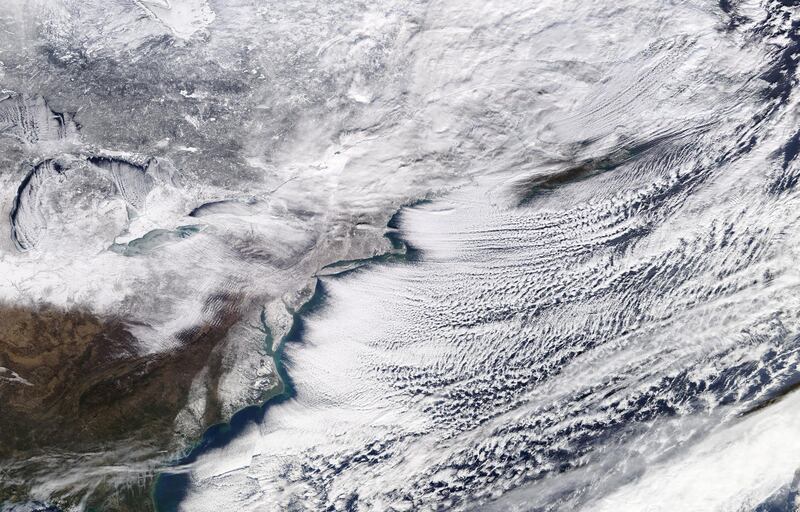The eastern parts of United States and Canada froze Saturday under record-breaking low temperatures following a deadly winter storm as New York's flagship airport descended into chaos, battling to clear flight backlog.
In Canada, temperatures approaching minus 50°C were forecast in northern Ontario and Quebec.
Arctic blasts and dangerously cold wind chills could make it feel as low as minus 42°C across the eastern United States, with the risk of frostbite to exposed skin within 10 minutes, officials warned.
The deep freeze follows a storm, dubbed a "bomb cyclone" by forecasters, which has been blamed for at least 19 deaths in the United States, from Texas to Wisconsin, US media reported.
Thursday's storm raked the East Coast with heavy snowfall, glacial temperatures and high winds, forcing the cancellation of flights.
But on Saturday, more than 3,420 flights within, into or out of the United States were still delayed, with New York's John F Kennedy airport and South Carolina's Charleston among the most affected.
The Port Authority, which runs New York-area airports, announced that flights were being limited into JFK, "including all flights scheduled to arrive into Terminal 1 for the rest of the evening".
It said a surge in flights rescheduled after the storm, combined with severe storm damage to equipment, resulted in delays in getting planes and passengers to gates.
Tracking site Flightradar24 said at least 12 international flights had been waiting, around two to four hours, for a gate to deplane.
_____________
Read more
Emirates flight between UAE and US affected by 'bomb cyclone'
Weather bomb: what is it and where does the term come from?
_____________
Passengers complained of being stranded on the tarmac for hours and then facing lengthy delays in baggage claim that made travelling, particularly with babies or the elderly, a misery.
"Losing patience," tweeted passenger James Allen, who said he travelled on Virgin Atlantic and had to wait three hours on the tarmac before reaching the gate, then two hours in baggage claim.
"Two small children hungry, thirsty and tired with no facilities or help in baggage reclaim. Very poor," he tweeted.
Multiple trans-Atlantic flights simply gave up and went home, including an Aeroflot flight from Moscow that turned back over Iceland.
A Norwegian Air flight from London diverted to Stewart International, 112 kilometres north of Manhattan, while Flightradar 24 said a Japan Airlines flight from Tokyo diverted to Boston.
Adding to the chaos, a China Southern Airlines and Kuwait Airways jet clipped each other's wings at JFK's Terminal 4 late Friday, causing damage to both aircraft but no injuries, officials said.
In New York, the National Weather Service chalked up record lowest high temperatures for the day at each of its climate sites except for Central Park, with temperatures about 25 degrees below normal.
Forecasters says below-normal temperatures are likely to continue into early next week, forecasting freezing rain from Kansas to Tennessee, and that ice could complicate road transport.
Mount Washington, New Hampshire recorded the second-coldest temperature on earth early Saturday, minus 38°C.
In eastern Canada, which has suffered through extreme cold for two weeks, there were further flight delays and cancellations at Toronto airport, and some communities along the Quebec coast faced flooding.
"Frostbite can develop within minutes on exposed skin, especially with wind chill — and keep emergency supplies in your vehicle," the Canadian weather service warned.






